Captain Edmond D. Pope, USN Ret.
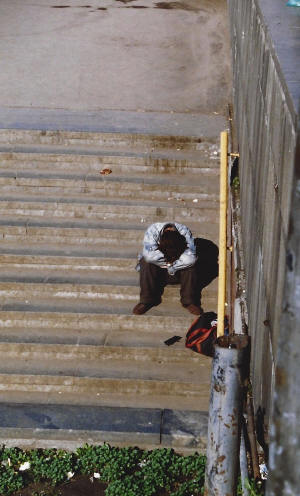 This is my third and final article looking back on the 1990’s collapse of the Soviet Union and its transition towards a modern, Russian state. The suffering of much of the Russian population during this transition still haunts me. But, when comparing the Russian experience with more recent
events in Greece, Spain and other countries, where the economy has taken a severe turn for the worse- the raw courage and determination of the Russian people stands out in stark contrast to the riots and wanton destruction noted in Western countries. It is inevitable that expectations and hopes in life frequently exceed reality and there was no exception to this regarding the
political relationship between our countries. But, the greater openness now afforded the people of both countries has moved us closer. If only we could remove the heavy footsteps of hardened, ever-meddling politicians on both sides, we would all be better off.
This is my third and final article looking back on the 1990’s collapse of the Soviet Union and its transition towards a modern, Russian state. The suffering of much of the Russian population during this transition still haunts me. But, when comparing the Russian experience with more recent
events in Greece, Spain and other countries, where the economy has taken a severe turn for the worse- the raw courage and determination of the Russian people stands out in stark contrast to the riots and wanton destruction noted in Western countries. It is inevitable that expectations and hopes in life frequently exceed reality and there was no exception to this regarding the
political relationship between our countries. But, the greater openness now afforded the people of both countries has moved us closer. If only we could remove the heavy footsteps of hardened, ever-meddling politicians on both sides, we would all be better off.
The Great Confusion
The events of August 1991 were not a surprise to the population of Russia. Like those of us in the West who followed them closely, we were not in the least bit surprised. But we were curious as to what path and time frame would be taken and how the citizens would cope with the chaos that was to follow. The majority of Russians, in fact, were eager and
ready for change. Pretty much anything was viewed as a step towards restoring and/or improving their standard of living. The true legacy of Leonid Brezhnev’s regime had finally come to haunt the entire nation. It was certainly not a surprise as their economy had been in free-fall since at least the early-1980’s.
This is what forced Mikhail Gorbachev to make drastic moves such as perestroika and glasnost, among many others, in efforts to rectify the steep decline in the overall standard of living. During Gorbachev’s years, private enterprise was allowed to flourish and helped many in Russia sustain a decent living and provided a much needed service to the
population: access to goods and services that the cumbersome communist bureaucracy had never delivered. In the latter days of the Soviet Union, there was no shortage of money, only a lack of things to buy. Many Russians described their life with the metaphor "They pretended to pay us and we pretended to work."
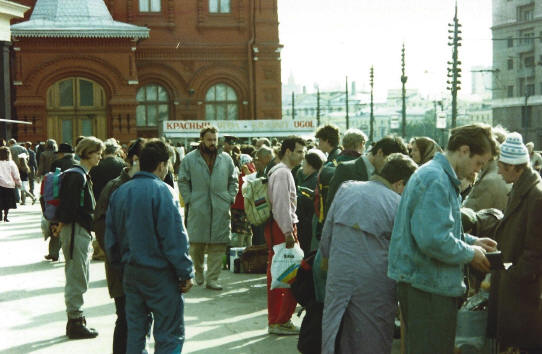
As we shall discuss below, not all Russians suffered equally. In fact, many prepared for the chaos and others took advantage of the situation and between the two lay a vast chasm of means and methods used to survive. Many did not. During the 1990s the Russian, maximum lifespan for males declined from close to age 70 down to the mid 50’s- much of that
due to stress and alcohol abuse. At present, the mortality rate is declining and is again approaching earlier norms.
For those of us attempting to engage and help the Russians, it was a very precarious adventure. I could easily provide dozens of examples of good, bad, sad and humorous incidents that I encountered. Virtually all of us who were attempting to engage the Russians shared stories. We often referred to the Russia of the 1990s as the "new wild west". Helping
our personal, Russian friends and their families became routine during our travels there. A little bit of hard cash could go a long way back then. Especially if you offered preferred hard currencies such as U.S. dollars or German Marks. They also greatly appreciated specialty food products (e.g. gourmet beans, seeds, spices, etc.) that were still hard to find.
Titanium is one of the many natural resources that Russia, the Ukraine and other former-Soviet republics are blessed with. Titanium is a hard but brittle, non-ferrous metal that is ultra lite-weight, resistant to rust and corrosion, but hard to work into parts. And, of course, it is very expensive. It is used extensively in high performance civil and
military aircraft engines as well as many other critical aviation components and has other applications such as for medical prosthetics etc. Having an abundance of this resource, the Russians also became expert in all aspects of titanium application and manufacturing. Unfortunately, most of the applications were for the military - until the collapse of the Soviet Union.
I recall having a strong fascination for titanium that began during my first trip to Russia in 1992. This was when a small group of Russian friends offered to sell me a 600-ton piece of titanium lying in the open in the outskirts of the city of Gorky ( named Nizhny Novgorod in tsarist days). They even drove me down for an inspection and honored me with
the nickname "Captain Titanium" as I was still on active duty at the time. The metal piece took my breath away. It was originally slated to become the outer pressure hull of a nuclear submarine. We shared many laughs that evening as we drank numerous toasts to clever ways as to how I was to get this large, hunk of metal back to the United States of America.
One fascinating story from the Cold War regarding titanium involves the U.S. designed and developed- super-fast (Mach 3), high-altitude spy plane known as the SR-71 - BLACKBIRD
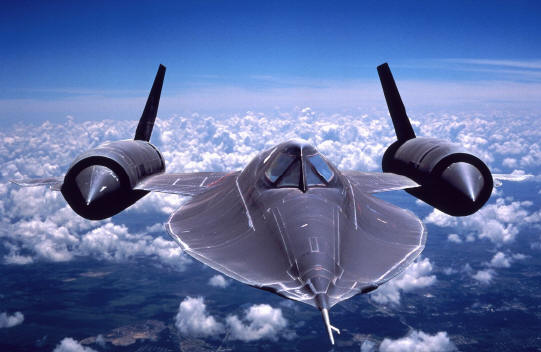
Achieving such speeds and altitudes was no simple feat when it came to survival of the aircraft at the very high temperatures developed due to friction. To solve this problem, Lockheed Corporation’s "Skunk Works" manufactured them using close to 90% titanium to achieve the incredible performance of this aircraft. It is said, but this
remains a Cold War secret- that a great deal of the titanium used in the SR-71was acquired in the Soviet Union!!
When in Moscow, I frequently visited the large outdoor market area in the Ismailovo District not far from Lefortovo Prison where I would spend close to a year of my life locked up in the year 2000. During earlier and happier days, I often found titanium objects at this market and made a habit of buying them as souvenirs and gifts. One of the items I
discovered and bought was a small keychain device that would serve as both a bottle opener and corkscrew.
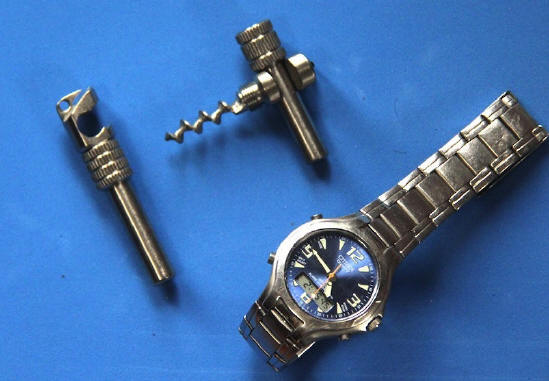
When I brought these souvenirs home, friends and coworkers would cherish them as unique conversation pieces. Few had ever seen anything quite like them. While I usually paid no more than $1 for each of them, when I saw how popular they were back home, I tried selling one on eBay. At the end of the auction I netted $118 for the first one. They were so
popular, in fact, that after several trips, one of my Russian friends located someone who worked at a government shipyard and indicated he would be happy to make as many as I wanted for only a little over $3 apiece. I had him make 500 and gave him a 50% deposit- his eyes were sparkling that day. When I returned to pick them up, he was delighted but told me that he could not
make any more as the shipyard had no more titanium. I’m sure he had not paid for the raw stock, but this was all part of what survival meant to many in Russia at the time. When I got home with them, they indeed proved extremely popular as gifts and I also sold a few to close friends. During my "last" trip to Russia in 2000, I had one of these devices in my pocket as I was
still trying to find someone who could supply me with more. After my arrest and internment in Lefortovo prison, the Russian secret police looked into everything I had trying to find anything that would help build their case against me. Even the single, titanium corkscrew that I had left in my pocket. Eventually, they decided it must be a spy device of some sort. Under
different circumstances I would have found this amusing. However, all their interest did was further convince me of the great lengths to which they were willing to go in their efforts to substantiate their claims against me.
The Clever Thrive
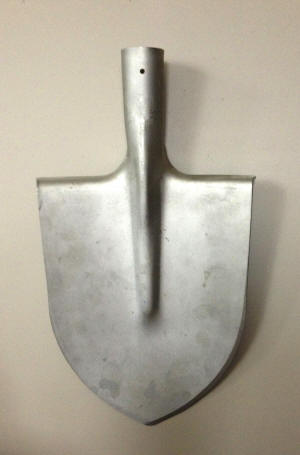 During one of my trips prior to 2000, I did visit the world’s largest titanium plant in the Ural Mountains region. It still carried the Soviet name - VSMPO Avisma. This former Soviet factory serves as a good example of a smart, progressive, Russian company that survived the chaos of the post-Soviet era. I
was very impressed by their modern approach to business. Today they have offices here in the U.S. and elsewhere around the world and manufacture a wide variety of commercial products. During one trip to Russia, some partners and I ended up buying close to 4,000 titanium shovelheads from them. Originally, they began producing these shovels and selling them to a German outlet
during the Gorbachev regime as a "defense conversion" project. Of course, to survive and avoid lower-level, state bureaucracy at the time, their shovels were billed as standard steel. Once they were in Germany, they were reprocessed and an under-the-table deal was worked out so that additional funding could help the plant and it’s work force survive. Today, you can buy
titanium shovels from Walmart.
During one of my trips prior to 2000, I did visit the world’s largest titanium plant in the Ural Mountains region. It still carried the Soviet name - VSMPO Avisma. This former Soviet factory serves as a good example of a smart, progressive, Russian company that survived the chaos of the post-Soviet era. I
was very impressed by their modern approach to business. Today they have offices here in the U.S. and elsewhere around the world and manufacture a wide variety of commercial products. During one trip to Russia, some partners and I ended up buying close to 4,000 titanium shovelheads from them. Originally, they began producing these shovels and selling them to a German outlet
during the Gorbachev regime as a "defense conversion" project. Of course, to survive and avoid lower-level, state bureaucracy at the time, their shovels were billed as standard steel. Once they were in Germany, they were reprocessed and an under-the-table deal was worked out so that additional funding could help the plant and it’s work force survive. Today, you can buy
titanium shovels from Walmart.
I also need to mention two other "companies" that were forward thinking and managed to survive the Soviet transition that I worked closely with: the Krylov Shipbuilding Research Institute and Prometey- the Central Research Institute of Structural Materials. These two institutes
were well known by the U.S. Navy and we developed an excellent and professional working relationship with both in the early 1990’s.
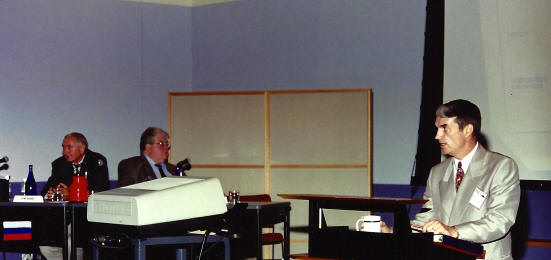
Both organizations have paid particular attention to the wellbeing of their work force. It should be noted that the leaders of both companies- Igor Gorynin (Prometey) and Valentin Pashin (Krylov- KSRI) are currently standing members of President Putin’s VPK (Defense Industrial Organization). The Russian Military Industrial Complex that oversees the
modernization of Russia’s, major defense industry.
It still seems strange to me in fact that, after my pardon and release from Lefortovo prison in 2000, KSRI completed and forwarded to me a technical study they had been working on. I was very satisfied with their product and paid them the full amount of the agreement we had reached prior to my arrest and imprisonment.
The Clever Also Steal
It was inevitable that some degree of opportunism and corruption would infuse itself into the chaos of the post Soviet period. It was certainly a significant factor in Russia’s transitional period in the 1990s. In my opinion, the worst offenders were the former, communist party leaders. These crooks, when sensing the end of their "Party" was near, were
engaged in massive theft of state property including entire institutes, factories, and towns, etc. All for their personal gain. To secure their stolen property, they first hired former Soviet security personnel and there were plenty of these ready and willing to step in. They were primarily military personnel who were no longer receiving a salary.
Also, there were a large number of "goons" - former thugs from Soviet state security services such as the KGB. The thieves were soon recognized by the general population and dubbed the "New Russians" because they openly flaunted their riches and new-found wealth. Their auto of choice was the Mercedes Benz or a General Motors SUV. Most of these former
"apparatchiks" lived in gated communities around Moscow and other cities where they could build themselves lavish new homes and collectively share the security costs. In the early days, a shopping trip for these privileged and pampered few would typically involve a flight to Paris to pick up whatever they needed. More recently, luxury department stores have appeared in Moscow
and St. Petersburg, but it still appears fashionable to fly to a large west European or American city for a serious, shopping trip. Rather than mount a concerted effort against these criminals- the normal response was to accept them and make jokes about the situation. One of the more common ones at the time was "What does the New Russian do when he has a flat tire on his
Mercedes? He buys a new one!!!"
The Rise of Russian Nationalism
Boris Yeltsin took the reins of a foundering Russia amid severe chaos and confusion in the early days of the 1990’s, but the actions were not a total surprise to the people of Russia. Neither was it a surprise to Yeltsin or other officials - most had been searching for answers for years. While Yeltsin is often
remembered for his drunken antics at Shannon Ireland’s International Airport and dancing on stages in downtown Moscow, he did take many actions that were key to helping move Russia in the right direction. Moving it away from the brutal state that Russia had become under the Soviets. He cut the number of state security personnel in half- primarily the KGB and GRU- whose
primary job had been to keep the civil population under tight control. He also established a "Pardon’s Commission" which released thousands of wrongly imprisoned citizens from Soviet times for crimes such as speaking their mind; engaging in public protests or simply stealing a can of peas- a well-documented case that had put a starving grandmother in a Soviet gulag. Yeltsin’s
downfall, unfortunately, was upsetting the system of the powerful military-industrial complex, which included the security services.
When Vladimir Putin, a career KGB officer, was put in office as the new President of Russia - he and his powerful behind-the-scenes "CABAL" knew the psyche of the Russian people. He knew just how far he could go in keeping them in check without pushing them to revolution. He has reinvigorated the state security services such as the Federal Security
Service (FSB) - his old organization and my capturers and tormentors in 2000. He has tightened personal freedom and liberty; significantly enriched himself and those around him by engaging in nefarious "deals" for their personal benefit; and encouraged Russian nationalism and pride- especially in the military to raise and keep the specter of foreign threats ever mindful.
In January 2013 Russia commissioned the first in a new class of ballistic missile submarines - the Yuriy Dolgorukiy. A nuclear powered, behemoth capable of carrying 16 intercontinental missiles. Each missile will carry multiple, reentry warheads. Three additional units are under construction. Two more are to be built in 2014. The Dolgorukiy Class
submarines are a demonstration of modern, Russian power with strong ties to ancient, Russian history. Yuriy Dolgorukiy was a 12th Century Prince and considered the "founder of Moscow".
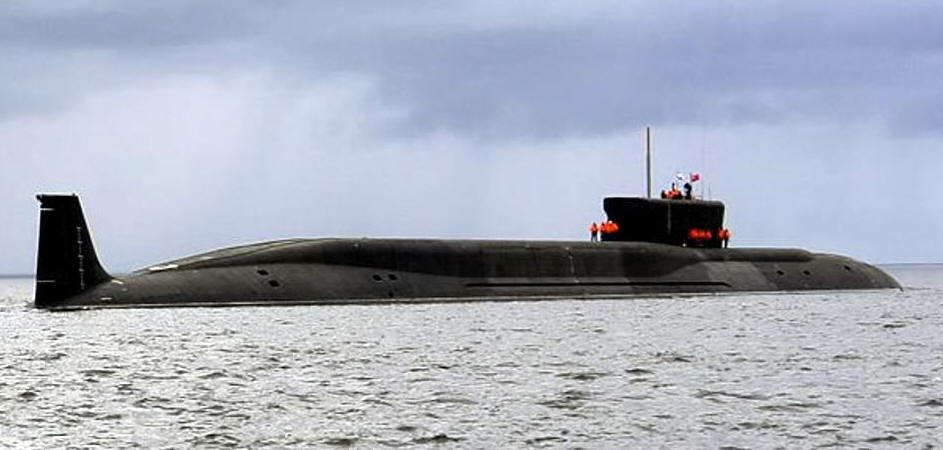
A more recent, highly contentious act by Vladimir Putin directed at the U.S. - was his decree barring Russian orphans from coming here. I have been to several, Russian orphanages and believe that this move will only serve to exacerbate the suffering of thousands of innocent, Russian children. Already, Russian citizens have taken to the streets to
protest this move.
Elsewhere, Putin is demonstrating his disdain for human rights by propping up the criminal Assad dictatorship in Syria. While the latest reports suggest the number of Syrian civilians killed in the turmoil may be approaching 100,000, another very recent report suggests that Assad may have taken refuge aboard one of the Russian Navy ships sitting in the
port of Tartus, Syria. Meanwhile, the bombing and killing goes on without interruption. Putin’s only conceivable motive is to rebuild a position of global power to oppose the U.S.
Any national, economic collapse will generate hard times, but a system of total state control such as the Russians experienced under hard-line communism could lead to sheer havoc. Russia has certainly seen just about all the extremes and degrees of this confusion during the past two decades- except the most destructive- a revolution. For this, they are
to be admired. Granted, there were … and still are protests and strong disagreements within Russia, but overall, their transition from a communist state has been relatively mild.
Putin may change all that - unfortunately for the Russian people. In his mind, the Cold War is not over - it has merely taken a temporary step back from the levels of hostility witnessed in the recent past.
Edmond D. Pope is a retired Navy Captain and former Naval Intelligence Officer. Following retirement from the Navy he was employed by Penn State’s Applied Research Laboratory. He was accused and convicted of espionage by the Russian government in 1999. More about his adventures in Russia can be found in his book "Torpedoed" and at his Web site
http://edmondpope.com/. Edmond Pope currently lives in State College, PA.
Read other articles by Captain Edmond D. Pope